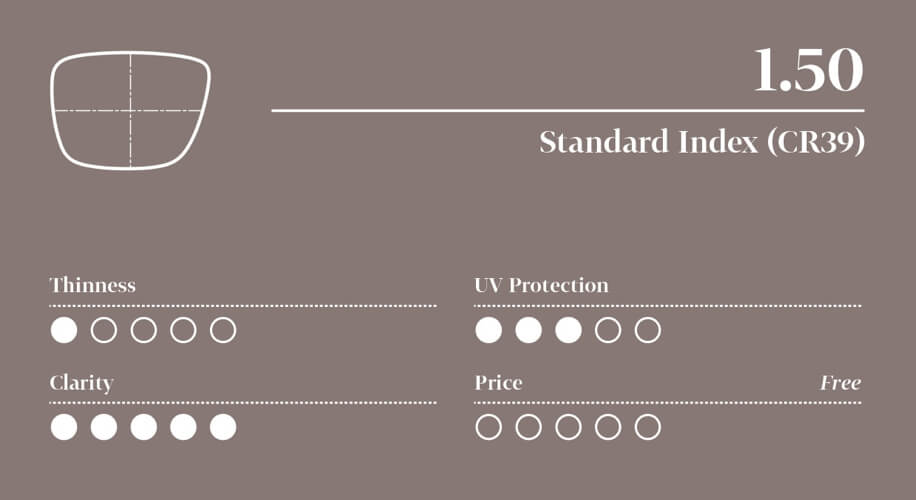The Pros and Cons of 1.50 Lenses: Is It the Right Choice for You?

When it comes to choosing the right lenses for your eyeglasses, there are several options available. One popular choice is 1.50 lenses, which are known for their affordability and versatility. However, before making a decision, it’s important to consider the pros and cons of these lenses to ensure they are the right choice for you.
What are 1.50 Lenses?
1.50 lenses, also known as CR-39, are the most basic and widely available lenses in the market. They are made from a standard plastic material and are suitable for correcting mild to moderate vision problems. These lenses have a refractive index of 1.50, which determines how efficiently they bend light.
Pros of 1.50 Lenses
- Affordability: One of the major advantages of 1.50 lenses is their affordability. Compared to higher index and impact-resistant lenses, which can be significantly more expensive, 1.50 lenses offer a budget-friendly option for those who need prescription eyeglasses.
- Wider field of vision: Another benefit of 1.50 lenses is their wider field of vision. Due to their lower index of refraction, these lenses allow for better peripheral vision, making them a good choice for individuals who require a greater range of sight.
- Optical Clarity: 1.50 lenses have a higher rating (or abbe value) in optical clarity, meaning they have the least likeness to have chromatic aberrations, delivering the best visual acuity for mild and moderate prescriptions.
Cons of 1.50 Lenses
- Lower index of refraction: While the lower index of refraction in 1.50 lenses provides them with a wider field of vision, it also means that they are not as efficient in bending light. This can result in thicker lenses for individuals with higher prescriptions, leading to a less appealing aesthetic appearance.
- Thicker and heavier: Another drawback of 1.50 lenses is that they tend to be thicker and heavier compared to other lens options. This can be a concern for individuals looking for a more thin and lightweight pair of glasses.
- Less suitable for higher prescriptions: Due to their lower index of refraction, 1.50 lenses may not be the best option for individuals with higher prescriptions. Higher index lenses, with their ability to bend light more efficiently, are often recommended for stronger prescriptions to ensure thinner and lighter lenses.
- Durability: 1.50 lenses are not impact resistant. They have a higher likelihood of cracking and chipping making them a poor choice for semi rimless and rimless glasses and are not recommended for children or anyone with an active lifestyle.
Related: Lens index guide for glasses: What index is best for me?
Is 1.50 the right choice for you?
Deciding whether 1.50 lenses are the right choice for you depends on various factors, including your prescription, lifestyle, and personal preferences. If you have a mild to moderate prescription and are seeking an affordable eyewear option with amazing optical clarity, 1.50 lenses could be a suitable choice. However, if you have a higher prescription and prioritize thin and lightweight lenses you may want to explore higher index options. Also consider another choice of lenses that is impact resistant for rimless or semi rimless frames.
1.50 lenses offer several advantages in terms of affordability, wider field of vision, and clarity. However, it’s important to consider the potential drawbacks, such as thicker and heavier lenses for higher prescriptions and durability for kids. Ultimately, the decision to choose 1.50 lenses should be based on individual needs and preferences. By weighing the pros and cons outlined in this blog post, you can make an informed decision about whether 1.50 lenses are the right choice for your vision needs.
About the Author: Dr. Steven Lee
Dr. Steven Lee is a visionary leader in the eye care and telemedicine sectors and has built a remarkable career by combining his formal training in eye care, engineering expertise, and a passion for innovation. Dr. Lee serves as Zenni’s the Head of Optical Product.



 Canada
Canada